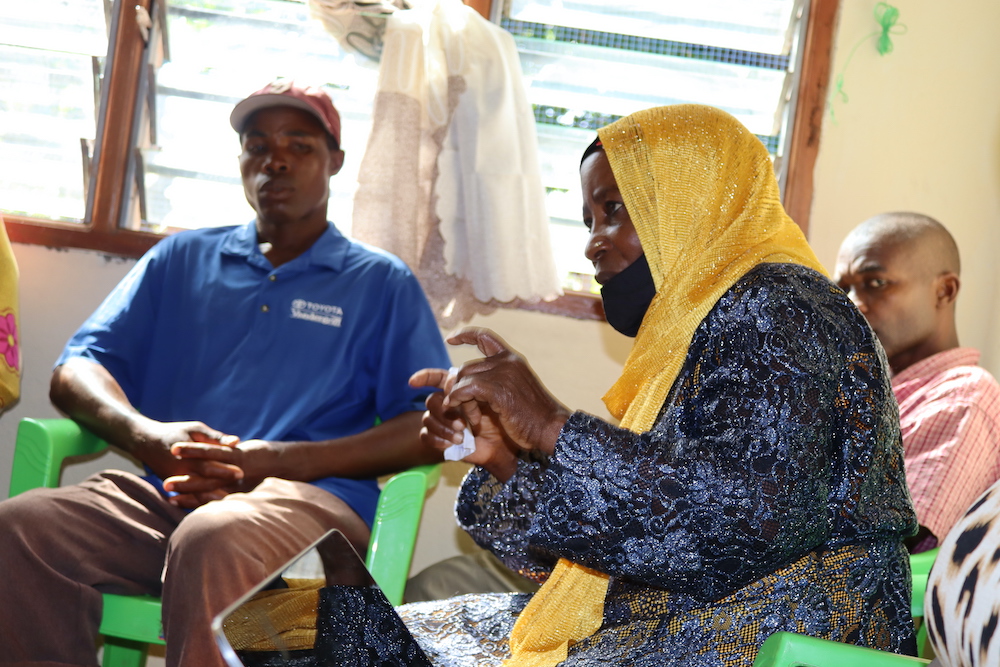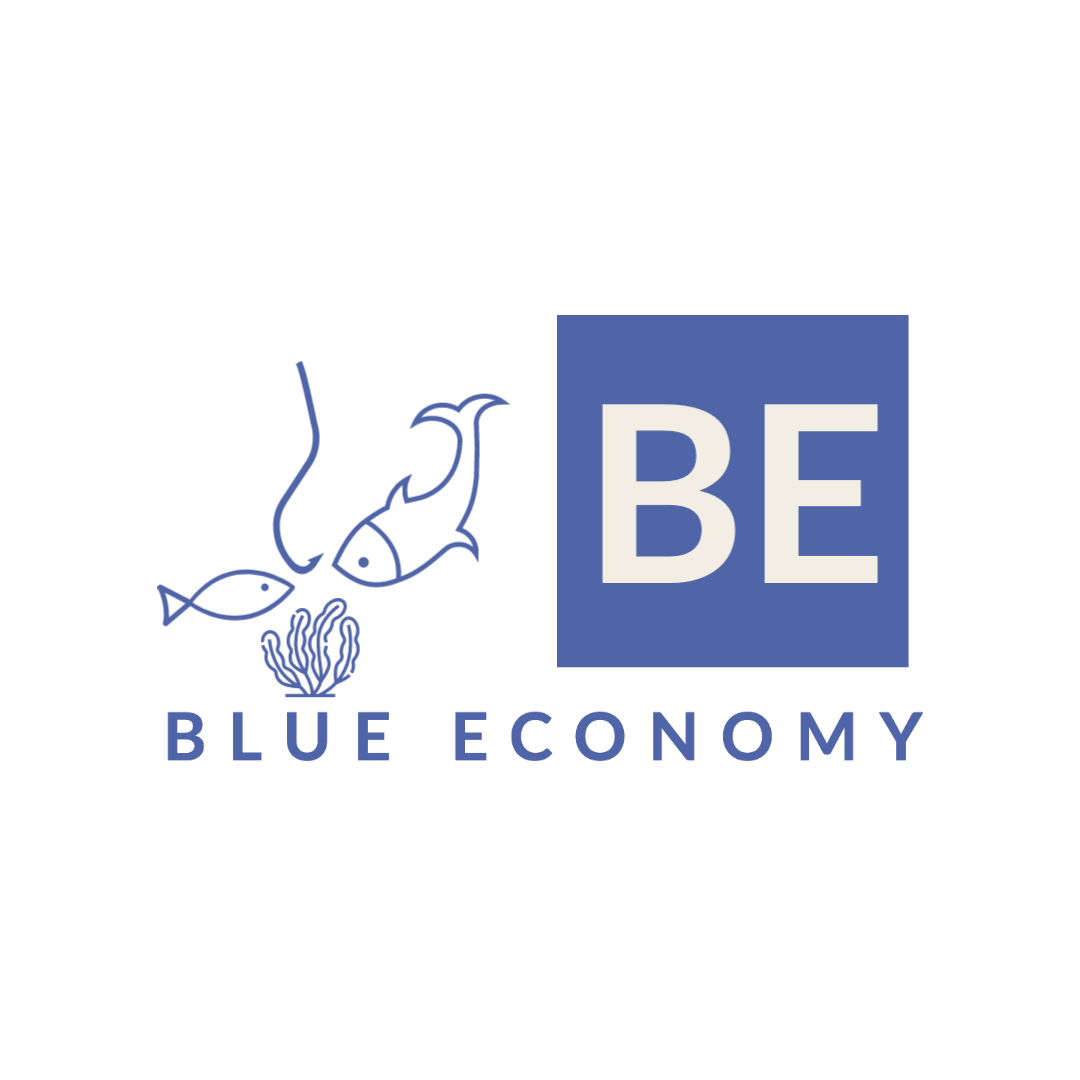Eva Komba, Kenneth Odary & Alfred Oduor
The increasing adoption of seaweed farming in Kenya’s coastal region is promising to transform women’s economic fortunes in the area. And now, a new initiative - Blue Empowerment - is expected to catalyse this transformation even further by introducing a novel technological model that integrates seaweed and fish farming.

Fatuma Usi during a discussion with members of Kibuyuni Farmers' Cooperative Society.
With this new initiative, women in Kibuyuni - a village tucked deep inside Kenya’s coastal county of Kwale - have begun to dream of bigger things.
Under the stewardship of Mama Fatuma Usi, who is also the chair of Kibuyuni Seaweed Farmers’ Cooperative Society, women in the village have not only begun taking control of their economic destiny through seaweed farming but also believe they can transform their community through the additional economic lever that comes with this new initiative.
Fatuma’s role as a pioneering seaweed farmer made her an early mentor to other women in Kibuyuni. Following her example, women in the village have taken up seaweed farming, providing an additional source of income to their families - consequently improving the socio-economic status of coastal communities.
As the chair of the cooperative society, mama Fatuma’s drive and vision has started to bear fruits. With a membership of 414, majority of whom are women (242), the society has been growing from strength to strength. It supports members by not only adding value to seaweed using the raw materials to make several products but also finds market for the same. The growing financial strength of the society has made it possible to provide credit to members at affordable interest rates.
After harvesting, the seaweed is processed into commercial products including shampoos and various types of soaps and detergents. However, marketing remains a great challenge, according to Mama Fatuma.
“Although we get money from selling these products, but marketing has been our greatest challenge. If we can be supported to get a good and reliable market, we can make much more money and the women will support their families in a better way and transform our community,” said Mama Fatuma.

Members of Kibuyuni Farmers' Cooperative Society.
The Blue Empowerment
Mama Fatuma is at the forefront of ensuring that residents of benefit from this new initiative which aims to support women exploit the lucrative blue economy. She is part of leadership of Bahari Community Based Organisation (CBO), which has partnered with the African Centre for Technology Studies (ACTS), Kenyatta University, KIRDI and KEMFRI to implement climate-smart integrated multi-trophic aquaculture (IMTA) of seaweeds and fish under an initiative dubbed the Blue Empowerment project. IMTA would alleviate climate change and socio-economic challenges because it is considered as a resilient, low-carbon and environmentally friendly and economically sustainable innovation. Various models of IMTA systems have been tried and used in other parts of the world, especially in South East Asia.
“The research component of this project will help improve the production of seaweed and fish in this area. It will also empower women with the knowledge on how to manage the production and value addition of seaweed which will enable them earn money and improve their livelihood,” she said.
The project aims to contribute to the tackling barriers for the empowerment of fisher women in Kenya’s coastal region through adoption of climate-smart integrated multi-trophic aquaculture (IMTA) of seaweeds and fish for improved livelihoods and resilience.
Women and girl’s empowerment
In Fatuma’s own accounts, girls in the community are now more likely to go to school than was the case before. This is because girls and women have traditionally faced numerous barriers in accessing, owning and controlling resources. In particular women, have had to contend with the burden of triple gender roles characterized by reproductive, productive and community roles.
In the above context, seaweed has created much-needed jobs for women and youth in the community. The success of women - and family-run seaweed farms has been hinged on highly flexible hours of work around the cyclical time scales of the tides and the moon alongside low capital and technological requirements for entry.

Tima Mohammed, a member of Kibuyuni Farmers' Cooperative Society, sorting seaweed at the society's premises.
Accolades and partnerships
Due to her exemplary work in improving the economic fortunes and social well-being of the residents, Mama Fatuma has received accolades, notably from the President of Kenya and the Governor of Kwale. As a result, Kibuyuni hosts a government funded warehouse which houses the cooperative society’s processing plant and storage unit.
The activities of the cooperative society have attracted the attention of several government agencies including the Kenya Marine and Fisheries Research Institute (KMFRI) and Kenya Industrial Research and Development Institute (KIRDI) in the form of capacity building and equipment. In recognition of the work started by Mama Fatuma, bilateral partners such as the World Bank (WB) and United Nations Industrial Development Office (UNIDO) have also supported various elements of work aimed at improving productivity of seaweed.
